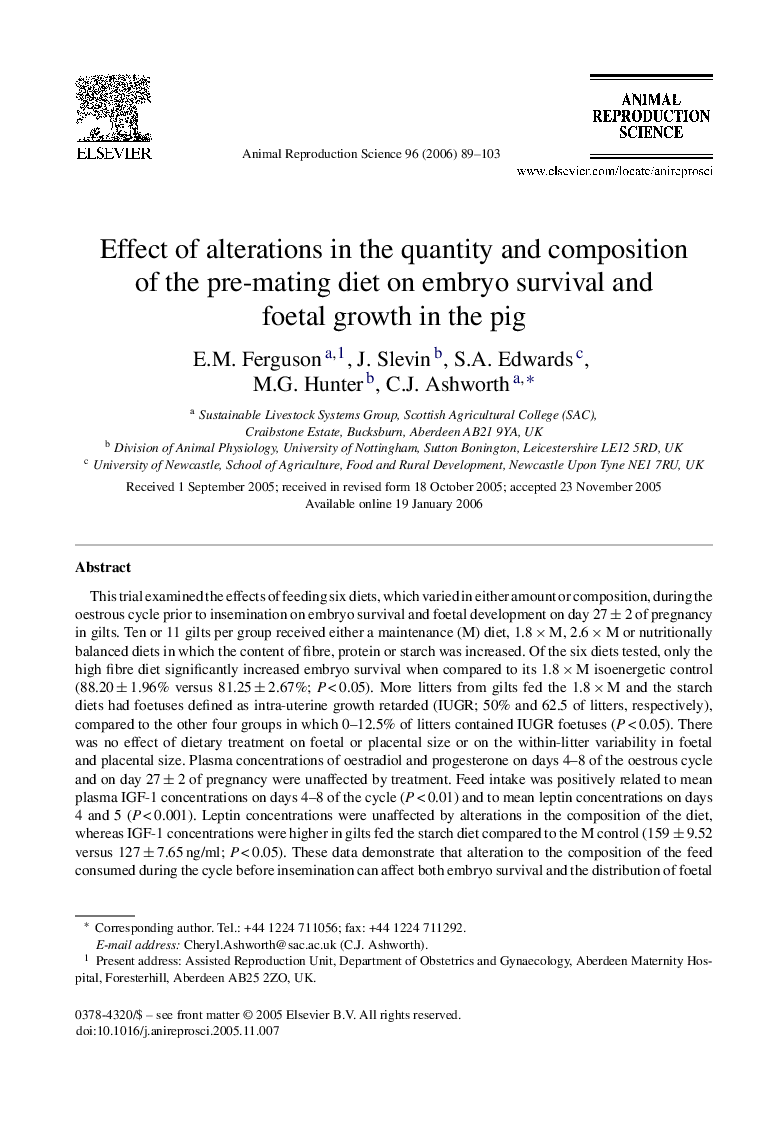| کد مقاله | کد نشریه | سال انتشار | مقاله انگلیسی | نسخه تمام متن |
|---|---|---|---|---|
| 2075034 | 1544824 | 2006 | 15 صفحه PDF | دانلود رایگان |

This trial examined the effects of feeding six diets, which varied in either amount or composition, during the oestrous cycle prior to insemination on embryo survival and foetal development on day 27 ± 2 of pregnancy in gilts. Ten or 11 gilts per group received either a maintenance (M) diet, 1.8 × M, 2.6 × M or nutritionally balanced diets in which the content of fibre, protein or starch was increased. Of the six diets tested, only the high fibre diet significantly increased embryo survival when compared to its 1.8 × M isoenergetic control (88.20 ± 1.96% versus 81.25 ± 2.67%; P < 0.05). More litters from gilts fed the 1.8 × M and the starch diets had foetuses defined as intra-uterine growth retarded (IUGR; 50% and 62.5 of litters, respectively), compared to the other four groups in which 0–12.5% of litters contained IUGR foetuses (P < 0.05). There was no effect of dietary treatment on foetal or placental size or on the within-litter variability in foetal and placental size. Plasma concentrations of oestradiol and progesterone on days 4–8 of the oestrous cycle and on day 27 ± 2 of pregnancy were unaffected by treatment. Feed intake was positively related to mean plasma IGF-1 concentrations on days 4–8 of the cycle (P < 0.01) and to mean leptin concentrations on days 4 and 5 (P < 0.001). Leptin concentrations were unaffected by alterations in the composition of the diet, whereas IGF-1 concentrations were higher in gilts fed the starch diet compared to the M control (159 ± 9.52 versus 127 ± 7.65 ng/ml; P < 0.05). These data demonstrate that alteration to the composition of the feed consumed during the cycle before insemination can affect both embryo survival and the distribution of foetal size within the litter. The underlying mechanism(s) remain to be determined, but probably involve dietary-induced changes in concentrations of reproductive hormones and/or intermediary metabolites that in turn affect ovarian follicular and oocyte development.
Journal: Animal Reproduction Science - Volume 96, Issues 1–2, November 2006, Pages 89–103